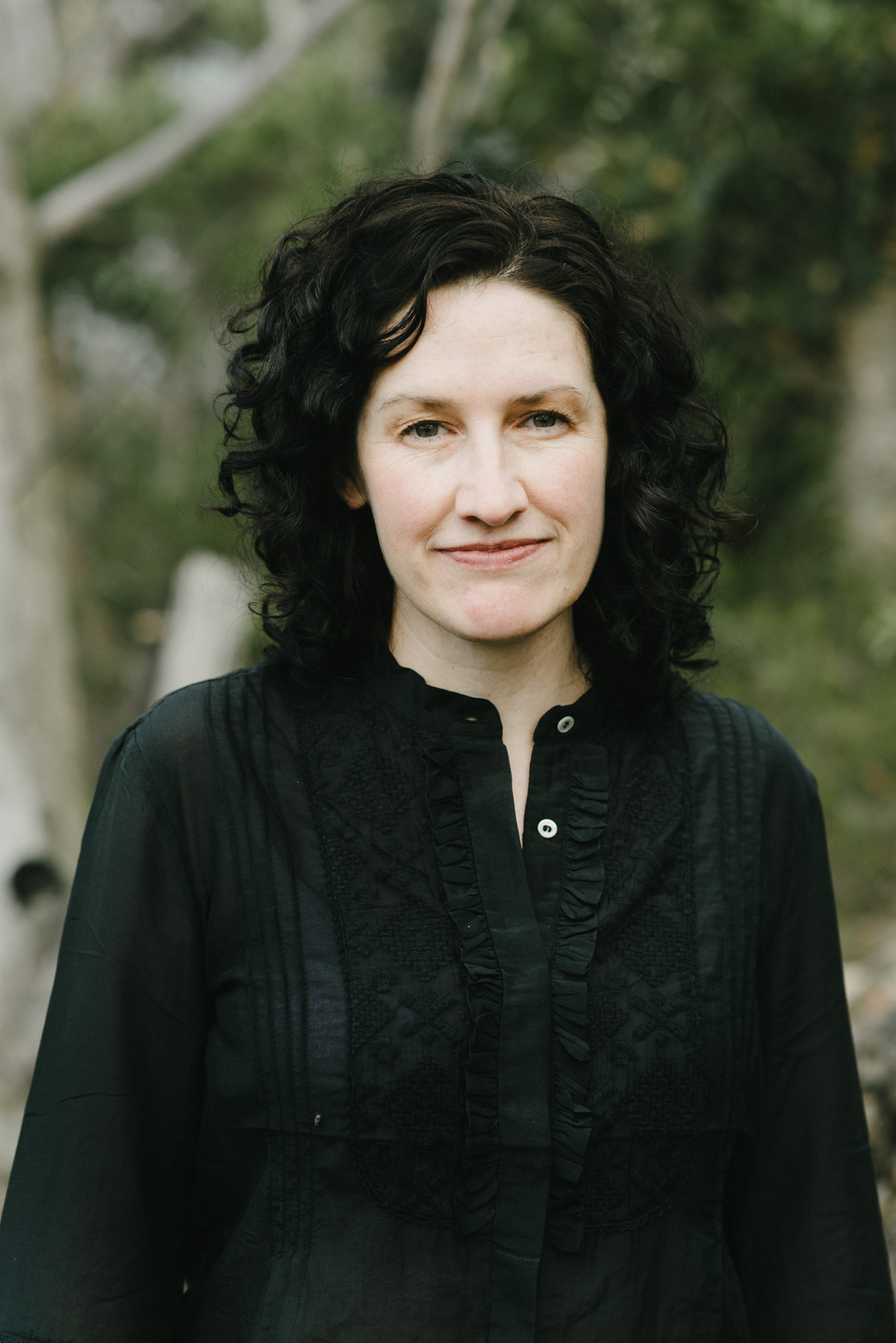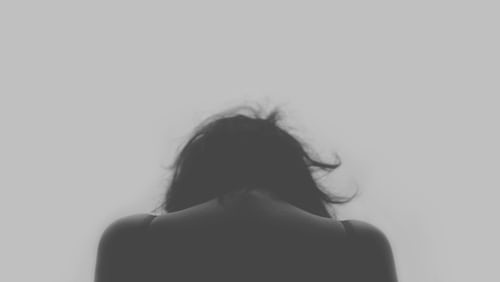I was probably meant to wait for James to come to me, but perhaps we both knew it would be me coming back to him. He was home. The living room light was on and I heard him playing the piano. This was before I knocked on the door: when I stood on the front porch in disbelief at my self-respect taking off down the street.
A couple argued next door and I heard every word. It was that sort of neighbourhood: angry, with old, thin, joint walls and not just the wail of a Garda siren, but the blue light circling through your front room because the car has pulled up at the neighbours, again.
It was a long time since I heard James play the piano. Maybe I had given him a gift: time and freedom to do what he wanted. Whilst for me the time and freedom brought a horrible knowledge that no one had any claims on me, no one fucking cared.
James might have been playing the piano for someone else. She, because it would be a woman, a young woman, may have heard my step on the stairs, or sensed that I was standing outside. She would pull back the curtain and ask him who that was at the front door. I knocked, loudly, interrupting them.
The piano stopped immediately and James opened the door.
I don’t know what he thought: he was probably making a decision about whether to let me into the house, because I had said things to him. When I was in the throes of racking up credit card debt on furniture and electrical items and white goods, I said things that neither of us would forget.
He wore a white shirt and black pants, the clothes he wore to work. His shirt was rolled up at the elbows and blue veins made their way up the inside of his forearms like fingers. He was playing the piano here, only to be playing it again shortly in a fine wine bar where people did not make requests but expected the classics. I realised, in the same moment, that he had started to write music again, and that I had been more harmed by my leaving than he had been.
‘Marianne,’ he said.
I heard it imbued with shame that he had done this again and that he had done it to us, or perhaps I just wanted to hear that. It was startling, but I wished I had never met him. The woman next door screamed wretched, damaging words and I wanted to do the same.
James began to smile. I hadn’t said a word. He stepped back into the hallway and I came inside. He called in sick to work.
James did not touch me for two hours and when he did it was gentle and enquiring. We went to bed and he rolled on top of me and pushed himself in deep so that I began to cry, not with physical pain, but sorrow. He looked down at me and in that half-light of the darkening evening I wondered what he made of me, this sad woman crying under him. He pulled away and kissed my hair and stroked my face and I could see that he didn’t know what else to do. But he gave himself away as my husband when he placed his hand on my stomach and kissed me on the mouth as if I had never left.
I moved back into this house three months ago now and there was only so long this could go on. James could not keep apologising and I could not stay aggrieved.
***
His son, Adam, was coming over this evening—belligerent, seething, and thirteen years of age. The testosterone had kicked in hard, much like it probably did for his father. Adam has James’s dark hair and green eyes and sometimes time has unwound and he is a young James.
Adam had been a shy child of twelve, who said please and thank you. He liked to read to me when I cooked. He hugged me good night completely, with both of his thin arms around my neck. I left that child for seven months and I missed him, mourned him, and I still did. For when I returned I faced a teenager who would have far preferred for me to stay away. He did not come anywhere near me.
A parent doesn’t just have one child, but many children all at different stages of life. That pre-pubescent child was gone. I didn’t even try to hug him now, not after that time he jostled against me and I realised he was pushing me away. He stared at me as if through me. I became the invisible step-mother. In the meantime, his father treated him as a gifted violinist who must be given space and a lot of money to flourish.
Adam stayed every second weekend and he mostly remained in his room: the sound of his violin reminded us he was still in the house. Like something out of early last century, he changed clothes before dinner, and chatted with James over a tiny glass of wine, while I finished cooking some elaborate dinner. I may as well not have been at that dinner table: James brought me into their conversation, or I tried to start one, but Adam responded to me in monosyllables as if I was interrogating him.
Adam probably knew everything. It would not be like his father to deceive him, it was one principle he had. Initially, I couldn’t work out why Adam would interpret this as reason to ignore me, but perhaps that’s precisely how he should have interpreted it: that I was not a person to bother with, after all.
***
James and I sat at the kitchen table having coffee. He moved the newspaper away from me, putting it on the counter out of my reach. Adam was coming over this evening and I didn’t know whether I would be here to see it.
‘Marianne. I cannot say sorry again.’
‘I know.’
‘But?’ he said.
‘What did she do that I don’t do?’ I said.
His face fell. ‘Fuck. Marianne. Nothing. Nothing at all.’
‘So, why?’
‘I don’t know.’
We sat in a vast silence. James sighed; probably bored to the back teeth—Adam could play the violin.
‘I don’t want to talk about it,’ I said, generously I thought.
‘Neither do I.’
James drained his coffee swiftly, but he put the cup down in a considered, deliberate way. He leaned forward and took my hand into both of his. His hands were cold, as if his bones were cold. He pressed his lips against my hand, climbing down from wherever he was and closer to me.
The morning sun was a shining, golden, parallelogram on the table and floor. It was that same light falling on the bed after our first night together. We had woken, still raw from the night. As we did what we did, I watched his world, that world he shared with his wife and his small child, implode, but I didn’t stop and neither did he.
Now, in the same light, James held my hand in both of his, watching me.
‘I am sorry, sweetheart. I am so very sorry,’ he murmured.
‘I know.’
*
I said I did not want her name, the length of time they were together or any single detail, because I suspected James would have told me the lot if I wanted it. Now, I taunted myself. He and her twisted together, sometimes in shadow, sometimes under a spotlight. What did she do? What did he do? His hands held her. His long-fingered hands that held me, that touched and started something inside of me that hadn’t stopped.
James would not have expected this, he would have thought I’d get over it, because I am the one who is relaxed, who is open-minded, who is just fine. But as it turns out, I am not. I am like every other goddamned woman.
*
Adam arrived carrying his overnight bag, his violin case clutched to his chest. His head bent as he unlatched the gate. Sometimes he drew a note from that violin that had me longing for it not to end.
His expression deadened when he saw me standing in the doorway. A taxi pulled away from the kerb behind him.
‘I thought Suzie was dropping you off,’ I said.
His steps slowed coming up the front path. ‘Mum’s got a headache.’
I was about to say, you should have called and one of us would have picked you up. But he probably liked arriving by taxi, the grown-up anonymity of it, and I didn’t want to start his weekend with an admonishment or instruction or however else he may take it.
I moved aside from the doorway and just as I said ‘Welcome’ he said ‘Where’s Dad?’
‘Inside. He’s cooking dinner tonight.’
Adam stopped and almost smiled. ‘So it’ll be pizza tonight.’
I smiled back. ‘We’ll see.’
This was a good start. He would never know how important this was to me. This boy, for he was only a boy, was growing every minute. The sweet, ephemeral, angularity of him seized the breath in my lungs as I took his bag and violin case and asked him how his week had been.
***
James packs a picnic. He knows that I like picnics, so I take this for what it is: him making amends, again. He packs lovely things that he bought from the Italian delicatessen, that he could take or leave but which he knows I adore. He wraps two wine glasses in a tea-towel.
The more care James shows, the more I think he is saying goodbye. Like last week when he surprised me with tickets to the Dublin Philharmonic. Afterwards, we walked down to the river and watched the water gilded with gold light. He turned to me and I could see the words forming but instead he said, ‘What’s wrong?’
He knows all of this, because I have told him, so he smiles and says brightly, ‘A perfect day for a picnic, don’t you think?’ He never used to say things brightly, or say these sorts of things at all, and we are both paying a price.
It is a perfect day for a picnic. As if it was in the old days, he lays his head on my lap, right where my legs join my torso. I am hot, throbbing beneath him. His head is beautifully heavy. We are drowsy with wine, food and the sun coming through the trees. He rests there below me. His mouth is not that far from mine, I would only need to lower my head. He would certainly raise his. But I cannot do it.
He opens his eyes and his face is undefended. I could say anything. It’s as if we have cast off the usual armour and we are the people who met, who married. It is the time for honesty.
‘Hi,’ he says.
I smile, because he is right to greet me again, this other person sitting here with him. This person he has always known.
END
Melissa Goode asserts the moral right to be identified as the author of this work







